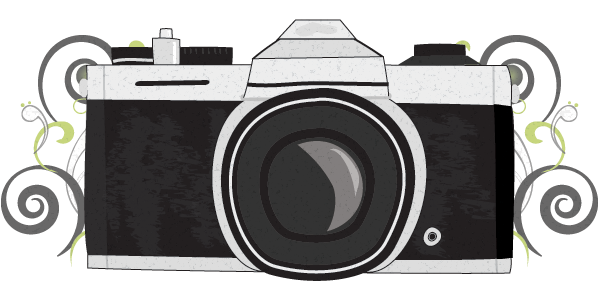
Photo courtesy of Peta Pixel
Canon VS. Nikon: Which Camera Should You Charge to the Card?
If you’re considering buying a new DSLR camera, the first choice to make is which brand to choose. When it comes to DSLRS there are two obvious frontrunners that dominate 90% of the market: Canon and Nikon. Both companies produce quality cameras but the teams are clearly defined with consumers and professionals. Yes, there are other companies that produce quality cameras, but for this article I will only be comparing the top two market defenders. I mean you wouldn’t consider a movie pretzel if you had the option to get nachos or popcorn. At the end of this article, I will tell you which brand I prefer, but until then I will try to keep my loyalty a secret. (*cough* Team Nachos!)
Check out this list provided by Improve Photography for the advantages of Canon and Nikon DSLR cameras. Arrreeeee yoooouuu reeeaddddyyy to SHUTTER?! (Ok, that was a little corny – my apologies.)
Advantages of Canon
- Video – Canon has trumped Nikon in terms of video performance over the past years. Nikon lags far behind Canon (1080p and more frame rates) in this aspect.
- Price – Nikon cameras and lenses are often slightly more expensive than Canon. Nikons generally cost approximately 8% than the comparable Canon gear.
- Megapixel Count – Some photographers don’t care about this, but it is handy to be able to crop in tight with more megapixels (it is more important to professionals or if you wish to print photos on a very large scale). Canons have outperformed Nikons in terms of pixel count for a few years now.
- Availability – When Canon announces a new camera, you can generally expect to get it in your hands within a short period of time. When Nikon announces a new camera or lens (especially higher-end gear), it considerably longer (4 to 6 months).
- Focus motors – All modern Canon lenses have built-in focus motors including the entry-level models which is only present in the high-end Nikon models.
Advantages of Nikon
- Low-Light Performance – Over the past two years, most people would agree that Nikon has generally set the mark with superior low-light cameras.
- Number of autofocus points – Some have argued that Nikons have more autofocus points than their Canon equivalents. A low number of autofocus points on Canon cameras means there isn’t an autofocus point for where you want to focus in the frame, forcing the photographer to focus and then recompose.
- Flash Control – Nikon has had better built-in options for controlling off-camera flash for years. Canon is bridging the gap with its new built-in flash triggers in the newer models.
- Larger APS-C sensors – Nikon uses slightly larger sensors in their crop sensor DSLR cameras. You can read about the difference between crop and full frame cameras here.
- Availability of minor features – Nikon has geotagging via GPS in the camera and expanded auto-exposure-bracketing sequences.
This round goes to: no one. It proves the biggest point that supporters have argued since the beginning: it’s all about user preference. There is no clear front-runner. Each brand has advantages over the other, but geotagging your photos may not be an interest of yours so why use it to form your decision? Yeah, it’s a cool feature, but would you ever use it? Example: Do you need a fork that automatically twirls your spaghetti?
So which brand did I choose?
Check out my next post to find out!
